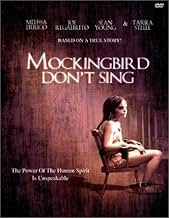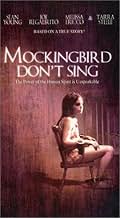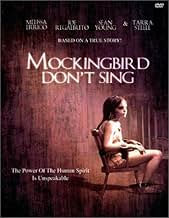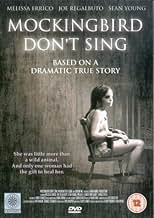IMDb-BEWERTUNG
6,3/10
2452
IHRE BEWERTUNG
Füge eine Handlung in deiner Sprache hinzuBased on the actual events of one of the most horrific cases of child abuse ever to be documented, this haunting drama tells the tale of a young girl who was locked in a room for over 12 yea... Alles lesenBased on the actual events of one of the most horrific cases of child abuse ever to be documented, this haunting drama tells the tale of a young girl who was locked in a room for over 12 years.Based on the actual events of one of the most horrific cases of child abuse ever to be documented, this haunting drama tells the tale of a young girl who was locked in a room for over 12 years.
- Regie
- Drehbuch
- Hauptbesetzung
- Auszeichnungen
- 1 wins total
Empfohlene Bewertungen
It's hard to believe an atrocity such as this occurred in the United States. The lack of punishment for the parents illustrates yet another breakdown of the system. My emotions swung between sadness and anger. This is something everyone should watch.
8/9/03
Dear Sylvia Marciniak
Thank you for looking at our film "Mockingbird Don't Sing". I am the producer director.
I am intrigued by your comment that it was not accurate. In what respect, pray tell? We spent two years researching this subject and enlisted the service of Dr Susan Curtiss (named Sandra Tannen in the film) who was, as you will know from your research, present at all but the early stages of Genie/Katie's life starting a few months after she arrived at Children's hospital. We interviewed her for about 40 hours total and she was our primary source.
Susie Curtiss, now a linguistics professor at UCLA, signed off on this script as being as accurate a representation as was possible, given the constraints of having to make a drama out of the story. That is to say, we felt that all the lawsuits which followed the child's return to her mother belonged in another story.
I used many other sources, including "sealed" records from the Los Angeles courthouses, Dr Rigler, Dr Jay Shurley, John Miner, the child's onelime legal guardian, Dr Kay Natali and a host of others who were actually personally acquainted with the child and her situation for many years in the 1960s 70's and 80's.
I suspect that you have read Russ Rymer's book and New Yorker articles -- documents much derided by the actual participants in the true story because of their massive inaccuracies and because his primary contact was the child's mother, Irene (now deceased by the way). Have you read Dr Susan Curtiss' own book on the subject, I wonder: `Genie - A Psycholinguistic Study of a Modern-Day `Wild Child'
So you see, I simply can't let you get away with the broad statement at the top of your comments "It's not accurate". You may have studied this case in class, but I spent three solid years on this killing myself to do justice to the story and to make it as accurately and elegantly as possible, and -- my God -- to actually manage to get a film made about such a risky and difficult subject.
I am saddened that you chose only to respond to the verisimilitude of the film. The names were changed for silly legal reasons beyond my control, but I might have hoped for a more reflective set of comments from a psychology student.
Now I'm sorry that I've yelled my head off at you -- you're probably a perfectly decent person. You should understand that this is an important movie for me and I don't respond well to uninformed criticism. You are free to dislike the picture, of course, but don't tell me "It's not accurate".
I do hope you will find time to reply and to forgive me for being such a curmudgeon.
Sincerely,
Harry Bromley-Davenport. (Producer/Director "Mockingbird Don't Sing")
Dear Sylvia Marciniak
Thank you for looking at our film "Mockingbird Don't Sing". I am the producer director.
I am intrigued by your comment that it was not accurate. In what respect, pray tell? We spent two years researching this subject and enlisted the service of Dr Susan Curtiss (named Sandra Tannen in the film) who was, as you will know from your research, present at all but the early stages of Genie/Katie's life starting a few months after she arrived at Children's hospital. We interviewed her for about 40 hours total and she was our primary source.
Susie Curtiss, now a linguistics professor at UCLA, signed off on this script as being as accurate a representation as was possible, given the constraints of having to make a drama out of the story. That is to say, we felt that all the lawsuits which followed the child's return to her mother belonged in another story.
I used many other sources, including "sealed" records from the Los Angeles courthouses, Dr Rigler, Dr Jay Shurley, John Miner, the child's onelime legal guardian, Dr Kay Natali and a host of others who were actually personally acquainted with the child and her situation for many years in the 1960s 70's and 80's.
I suspect that you have read Russ Rymer's book and New Yorker articles -- documents much derided by the actual participants in the true story because of their massive inaccuracies and because his primary contact was the child's mother, Irene (now deceased by the way). Have you read Dr Susan Curtiss' own book on the subject, I wonder: `Genie - A Psycholinguistic Study of a Modern-Day `Wild Child'
So you see, I simply can't let you get away with the broad statement at the top of your comments "It's not accurate". You may have studied this case in class, but I spent three solid years on this killing myself to do justice to the story and to make it as accurately and elegantly as possible, and -- my God -- to actually manage to get a film made about such a risky and difficult subject.
I am saddened that you chose only to respond to the verisimilitude of the film. The names were changed for silly legal reasons beyond my control, but I might have hoped for a more reflective set of comments from a psychology student.
Now I'm sorry that I've yelled my head off at you -- you're probably a perfectly decent person. You should understand that this is an important movie for me and I don't respond well to uninformed criticism. You are free to dislike the picture, of course, but don't tell me "It's not accurate".
I do hope you will find time to reply and to forgive me for being such a curmudgeon.
Sincerely,
Harry Bromley-Davenport. (Producer/Director "Mockingbird Don't Sing")
I missed this film, when it was displayed at University by my' Psychology department, but as soon as I stumbled over it in our local Video Store, I rented it and quite honestly, I don't know what to tell you. I really believe, that I can't say this was a good film, because the story is just too sad and too real. What I can say though, is that this is an utmost interesting film, which displays what humans are capable of in a very professional way. I must say this, for I felt this was not so much a dramatized version of a true life event, but rather a documentary on a true life event. This is neither a tear jerker, nor a graphically violent film but maybe that it is also the reason it is twice as memorable as your average psychological drama. This film will leave you sitting shocked and numb in front of your TV.
8 out of 10 (for people who are really interested in the human psyche like psychology students)
7 out of 10 (for the average viewer)
8 out of 10 (for people who are really interested in the human psyche like psychology students)
7 out of 10 (for the average viewer)
This movie should by no means be rated on it's entertainment value as some do as the true case is way too serious to consider for entertainment purposes.
I stumbled across it on a movie channel and just went along feeling more and more sad and frustrated over the total failure of the authorities to secure the interests of this poor, wretched human experiencing for 13 years a fate much worse than death and later being less than ideally where the therapists, teachers and researches take care of no. 1 first.
I don't know if anyone in America has learned anything from this case, but some historic words come into mind:
"Give me your tired, your poor, Your huddled masses yearning to breathe free, The wretched refuse of your teeming shore. Send these, the homeless, tempest-tost to me, I lift my lamp beside the golden door!"
But is America really interested in helping any of these?
I missed a sharper critical profile in the movie on this aspect rather than letting everybody off easy.
The young actor did a tremendous job and can't be applauded enough.
I am not sure I want to recommend anyone seeing it, as it is way too sad. Maybe we are better off not knowing of the cruelty and stupidity some parents can subject their children to and easily get away with it.
I stumbled across it on a movie channel and just went along feeling more and more sad and frustrated over the total failure of the authorities to secure the interests of this poor, wretched human experiencing for 13 years a fate much worse than death and later being less than ideally where the therapists, teachers and researches take care of no. 1 first.
I don't know if anyone in America has learned anything from this case, but some historic words come into mind:
"Give me your tired, your poor, Your huddled masses yearning to breathe free, The wretched refuse of your teeming shore. Send these, the homeless, tempest-tost to me, I lift my lamp beside the golden door!"
But is America really interested in helping any of these?
I missed a sharper critical profile in the movie on this aspect rather than letting everybody off easy.
The young actor did a tremendous job and can't be applauded enough.
I am not sure I want to recommend anyone seeing it, as it is way too sad. Maybe we are better off not knowing of the cruelty and stupidity some parents can subject their children to and easily get away with it.
This movie kept me glued to the screen. I think it is because of natural human instinct to be inquisitive about terrible & traumatic events that happen to others. Also, the acting was really believable and natural. The storyline was great, except for the ending. At the end of the movie, they had text on the screen telling what happened to each character. But they didn't tell enough of what happened to Katie. I don't like to be left hanging about the main character. It is like missing the end of the movie--what is the point of watching 90% of a movie, if you miss the last 10%? I really wanted to know the outcome, and still do. Maybe if I search online, I can find out some more information. It was definitely worth watching. But, I would have given it a score of 9 instead of 7 if it had more info about the main character and her ending.
Wusstest du schon
- WissenswertesThe character of Katie is based on a girl called "Genie" by a few scientists, and the character of Sandra is based on linguist Susan Curtiss.
- PatzerWhen Sandra drives her Volkswagen Bug to visit Katie, who is now living with her mother Louise, the interior of her car is painted red. But after she parks and opens the door, the paint is white.
- Zitate
Louise Standon: Wes never did trust doctors, and, uh... and in that regard, I've come around to his way of thinking.
Top-Auswahl
Melde dich zum Bewerten an und greife auf die Watchlist für personalisierte Empfehlungen zu.
- How long is Mockingbird Don't Sing?Powered by Alexa
Details
Box Office
- Budget
- 3.000.000 $ (geschätzt)
Zu dieser Seite beitragen
Bearbeitung vorschlagen oder fehlenden Inhalt hinzufügen


































